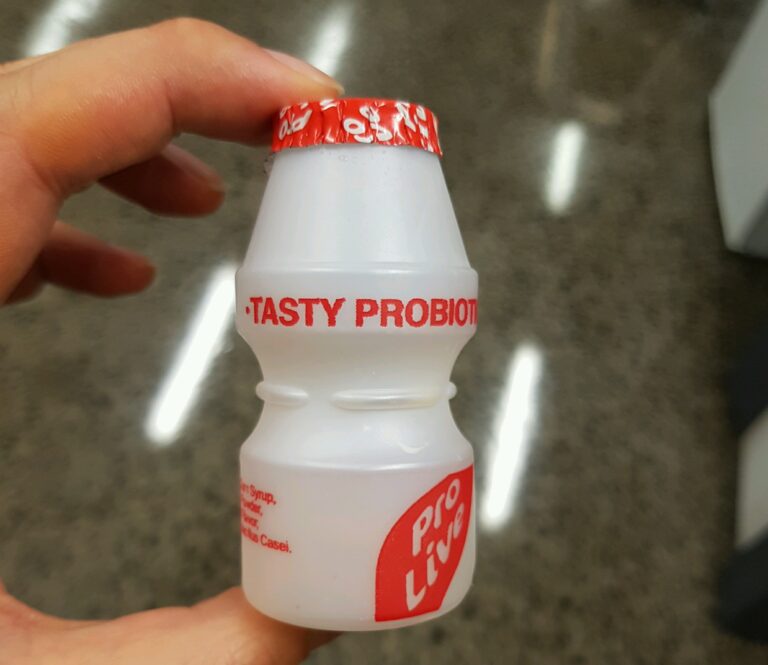Living with Crohn’s can feel like untangling a web of gut health mysteries. Prebiotics for Crohn’s offer a promising way to support your gut microbiome, a key player in managing inflammation and symptoms. With the right approach, you can empower your gut to find balance amidst the chaos.
How Do I Heal My Gut with Crohn’s Disease?
Supporting your gut health with Crohn’s starts with small, consistent changes. Adding prebiotic-rich foods like garlic, onions, and bananas can fuel beneficial bacteria, helping to rebuild a balanced microbiome. Combine these with medication, stress management, and other dietary strategies tailored to your needs. Always consult your doctor before making drastic dietary changes. Think of your gut as a delicately balanced garden; prune carefully, because accidentally snipping the good blooms (beneficial bacteria) while tackling weeds (symptoms) is easily done.
The Gut Microbiome’s Role in Crohn’s and Prebiotics
Your gut microbiome is like a thriving city filled with diverse microbes working together. In Crohn’s, this harmony is disrupted, leading to inflammation. Prebiotics for Crohn’s can help restore balance by feeding beneficial bacteria, reducing symptoms over time.
Probiotics for Crohn’s Disease: Finding the Best Fit for Your Gut
Choosing probiotics for Crohn’s disease is akin to selecting the perfect tea blend at a bustling café; so many delightful options, but not every cuppa suits every palate (or gut!). While there’s no definitive ‘best’ probiotic for everyone with Crohn’s, strains like Lactobacillus and Bifidobacterium have shown promise in research. But before you jump on the probiotic bandwagon, do chat with your healthcare professional. They can spill the tea on what might be best for your gut!
What is the Gut Microbiota in Crohn’s Disease?
Your gut microbiota in Crohn’s disease refers to the diverse population of microbial residents bustling about your internal city centre, where balance matters more than popularity. With Crohn’s, the city’s demographics shift. Some good bacteria decrease, while harmful ones may increase. It’s like the sudden popularity of that hipster café no one paid attention to before, altering the cityscape.
“The gut is the mirror of health,” said Dr. Jane Smith, a leading gastroenterologist. And it’s quite the reflective mirror at that, constantly adjusting to dietary choices, stress, medications, and more.
A Deeper Dive into the Diet
Ah, diets! They’re like that one guest who overstays their welcome at the party. For Crohn’s patients, navigating the menu can sometimes feel like tightrope walking without a safety net. Some swear by the Mediterranean diet, while others pledge allegiance to low-FODMAP. There’s no universal ‘best’ diet, but a common thread is listening to your body. If broccoli feels like a mini rebellion in your stomach, maybe give it a miss next time!
The Stress Connection: Why Relaxing Isn’t Just About Spa Days
Between work pressures, the latest Netflix cliffhanger, and that mysteriously missing sock, life is stressful. But did you know stress can agitate Crohn’s symptoms? It’s like the gut’s not-so-friendly reminder to take a breather. Activities like yoga, meditation, or finally finishing that jigsaw puzzle abandoned last Christmas can do wonders; not just for your stress, but for your gut’s wellbeing too. And if you find your sock during one of those relaxation moments, consider it a win-win.
Holistic Approaches: Beyond the Pill
Ever heard of turmeric lattes or acupuncture? Some Crohn’s patients explore alternative therapies. While they shouldn’t replace conventional treatments, they might provide that extra oomph. As always, keep your healthcare team in the loop about any adventures beyond the prescription pad.
Prebiotics vs Probiotics for Crohn’s
You’ve probably heard about probiotics, the good bacteria that can help regulate your gut. But what about prebiotics? Think of them as the sidekick that ensures probiotics do their job well.
- Probiotics: These are live bacteria and yeast that add beneficial microbes to your gut. Found in fermented foods like yoghurt, kefir, and sauerkraut, they’re great for introducing good bacteria.
- Prebiotics: These fibres aren’t digestible by your body but serve as food for the probiotics already present in your gut. Without prebiotics, probiotics can’t thrive.
For Crohn’s patients, the combination of prebiotics and probiotics can help reduce inflammation and improve gut health. While probiotics introduce balance, prebiotics sustain it by feeding your existing good bacteria. Think of it as giving your microbiome the resources it needs to rebuild and stay strong.
And speaking of probiotics, you might have heard whispers of Yakult syrup floating around online forums. But let’s clarify—Yakult, that tiny bottle of friendly bacteria goodness, doesn’t exactly come in syrup form. Still, if probiotics were superheroes, Yakult would certainly have its own little cape.
How Prebiotics Improve Gut Health in Crohn’s
Prebiotics are the unsung heroes of gut health. For Crohn’s patients, these fibres act as fuel for beneficial bacteria, promoting a healthier microbiome. Foods like asparagus, chicory root, and whole grains pack a prebiotic punch, helping reduce inflammation naturally.
Foods High in Prebiotics for Crohn’s
Everyone talks about probiotics, but what about their less famous cousins, prebiotics? These non-digestible fibres help beneficial bacteria thrive. While foods like garlic and onions are excellent prebiotic sources, they may trigger symptoms for some Crohn’s patients. If onions don’t agree with your gut, try alternatives like bananas or asparagus instead.

The Fungi Factor
Recent UK research indicated that Crohn’s patients often have lower levels of fungi, like Candida, in their gut compared to the general population. This revelation makes us wonder: is there more to the story than just bacteria?
Research and Benefits of Prebiotics in Crohn’s
Emerging research highlights the potential of prebiotics in managing Crohn’s disease. Studies suggest that prebiotics can encourage the growth of anti-inflammatory gut bacteria, helping to ease symptoms like abdominal pain and diarrhoea.
One study from the UK found that prebiotics like inulin and oligosaccharides improved gut microbial diversity in people with inflammatory bowel disease (IBD). This diversity is crucial, as a balanced microbiome is less likely to trigger inflammation.
For Crohn’s patients, the benefits of prebiotics go beyond the gut. By reducing systemic inflammation, they may also support overall immune health and improve energy levels. Prebiotic foods like those mentioned earlier aren’t just good for your gut—they’re a step towards a healthier you.
In conclusion, Crohn’s disease and the gut microbiome are a relationship worthy of its soap opera. It’s dynamic, dramatic, and requires regular attention. But with the right insights, an appetite for knowledge (and maybe fewer broccolis?), the path to managing this condition becomes a little clearer. Cheers to understanding our inner universe, embracing laughter, and those golden moments when everything in the gut just… clicks.





